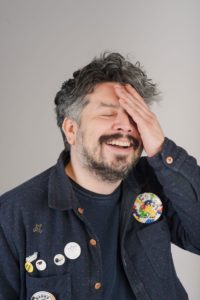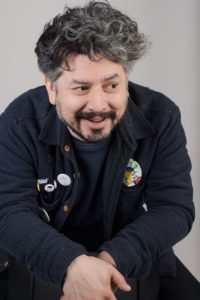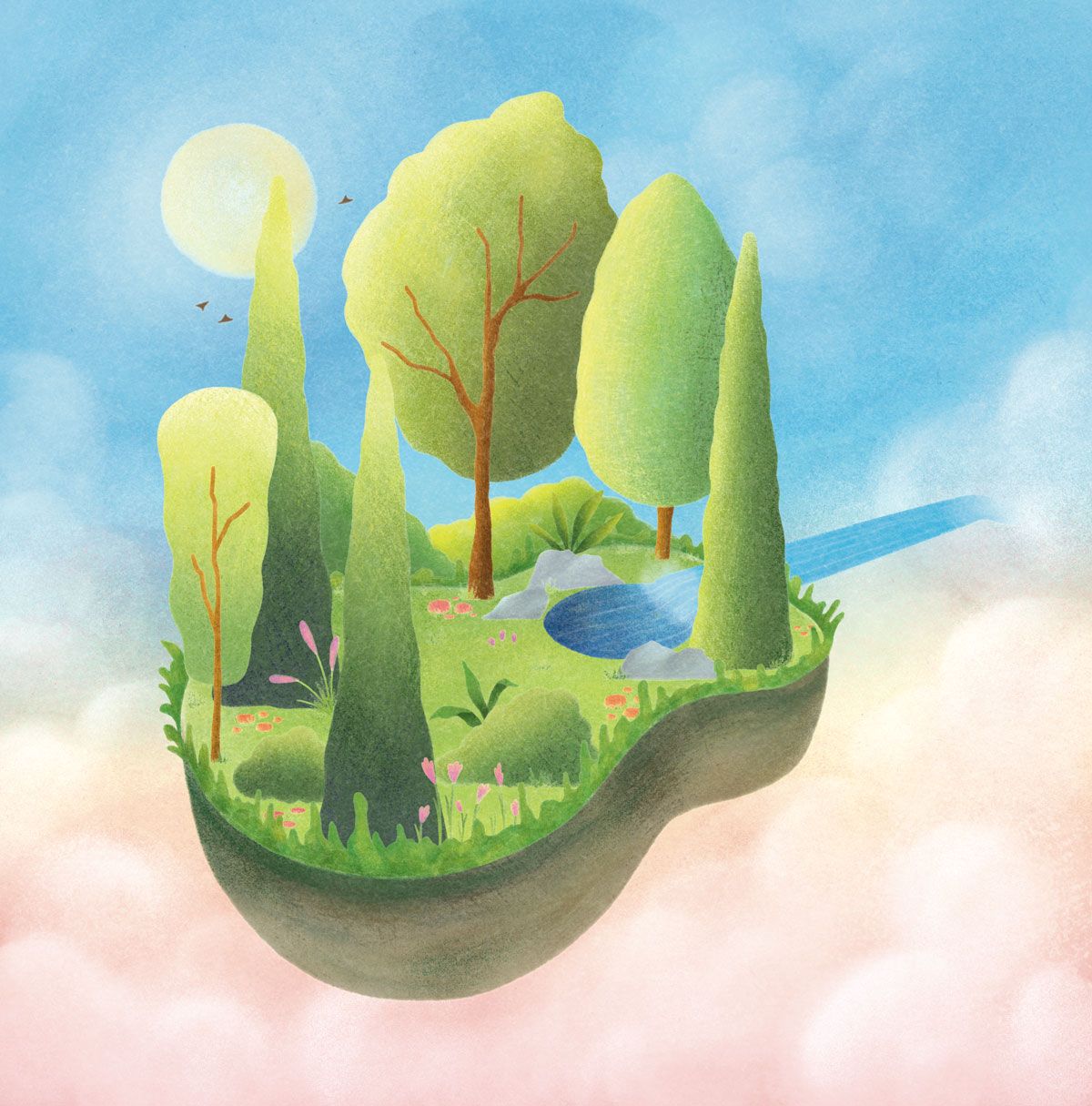Francis Baptiste is an Indigenous musician from the Osoyoos Indian Band in the Okanagan Valley. His work explores themes of trauma, addiction, and family. I sat down with Baptiste over Zoom to talk about his debut album Family (Snəqsilxʷ) which features songs in both English and Nsyilxcən, the endangered language of the Sylix people. Fewer than 40 elders speak Nsyilxcən fluently.
Baptiste and I talked about the recent “Freedom Convoys” and our mutual frustration with the display of aggression and hyper-nationalism. “If you went to the Women’s Memorial March the other day, there was a lot of sorrow, a lot of rage, because it’s a very important thing. It’s injustice. A lot of Freedom Convey people say they are fighting for injustice — but it just had a Canada Day vibe to it,” he says. The conversation was refreshingly frank and his absurdist philosophy contained layers of humour and pain. Baptiste was not precious. Not when relaying his art, or life in general — even in places where I felt the need to protect.
Hina: We talked quite a bit about the pandemic at the beginning of our conversation. We have collectively witnessed, and many have experienced, a lot of loss. A lot of grief. I can’t help but draw parallels between that, and the loss of language. Do those two things correlate for you?
Francis: Everything about being native feels like this lifelong struggle for identity. There’s the loss you feel for things that you haven’t lost, because you never had those things. The things my parents lost, and my grandparents lost. It’s like trying to piece together a multi-generational puzzle in a way. I’m trying to figure out where I fit in and how — if I fit in anywhere. Just being out here [Vancouver], has caused a lot of grief and alienation, it’s this feeling of being a deserter.
H: When did you start learning the language?
F: Recently. My grandmother died two years ago and she was one of the few remaining fluent speakers of this [Nsyilxcən] language in our community and her death opened me up to the reality of how close we are to losing it forever.
I really regret not starting before my grandma died. Because she would have been an incredible resource. The more I try, the more it feels depressingly impossible in a way. I can learn some words and I can say some things, like a party trick, but I don’t think there will be a day where I’ll be able to sit and have a fully fluent conversation with another Sylix person in our language. I think the time for that has already passed for me.
H: How do you imagine the future of Nsyilxcən?
F: By the time my son is grown-up and my age, this language could be a set of vocab that people can half-learn, or maybe even just preserve in some kind of bastardized version, or some evolved version of the language. Whenever I’m trying to learn something, I put it in a song.
I imagine my grandmother in the next plane of existence and I wonder if she’s rolling her eyes and saying, “Oh my God Francis, you sound like an idiot.”
That’s the other good thing about it — nobody speaks this language. I could be mispronouncing everything and no one will know, I could be making a whole thing up. That in a sense is a metaphor for the whole situation. A microcosm of a person talking to themselves alone in a room.

H: Your intention with “Snəqsilxʷ (Family)” is preserving an Indigeneous language. What does preserving look like to you?
F: It means putting in some effort. Trying. Through that — setting an example for the rest of my community, and who knows, Sylix people from the Okanagan might hear the album and learn a few words or something.
Part of me putting out a song isn’t just trying to promote the language itself, but also learn it. It helps me remember, and I’ve noticed it’s really helped my son learn it. He knows how to sing the songs. He knows all the words to Snəqsilxʷ and when he’s sitting around on the couch playing his video game, singing the song, I’ll quiz him a little bit. It’s like learning your ABCs, it’s easier if it’s in a song.
H: You don’t shy away from being vulnerable in your songwriting — whether it be talking about your divorce, or your struggles with substance use and alcohol. Has music been a cathartic release?
F: Oh definitely. I use it as a form of therapy sometimes.
Lately, I try to consciously choose what I write about. Especially in some of these songs, I’m choosing to talk about family — this struggle with identity and heritage — and addiction will always be an ongoing theme in my life and music. When you’re consciously choosing what you’re writing, what you’re seeing, it gives you a chance to meditate on it. To sit and really chew on it, process it a bit, maybe make it rhyme.
H: Your album features three songs in Nsyilxcən, the endangered language of the Sylix people. How did you decide which songs to write in English and which ones to write in your native language?
F: It really became about ability because it is a hard language to speak and there are certain letters that I learned early on I have to avoid because they’re almost impossible to sing. I knew I needed to write simple melodies because I’m trying to solve the jigsaw puzzle of these syllables and melodies to make them work together.
H: Do you think there were ideas and emotions that perhaps English couldn’t capture in the lyrics?
F: It’s more thematic. It’s not so much the specific emotions, or the specific lyrics. It’s the overarching idea of trying to reconnect with heritage and my ongoing struggle with being so far away and reconnecting with my family. This need to write about what you are pining for.
Also, having Finn, my son, thrown into the mix. I try to explain to him, “we have this place, this ancestral home. That is our real home.” And it’s a big theme to throw at a six-year-old — because he doesn’t need to think about ancestral lands and homes. But I do tell him we have a place back home, and that’s where we belong, and our family has always been there.
It’s also this idea of being born with an end destination. I hate to use this metaphor because it’s so on-the-nose, but it’s really like salmon swimming upstream.
No matter what we do in our lives, I know where we’re going to be buried. I’ve always known from the time Finn and I were born that we will end up in the cemetery on our ancestral land. And there’s a comfort in being born knowing your final destination. It feels good. I can fuck up as much as I want. It’s going to be fine. I’m still going to end up in the dirt at Nk’mip.
It’s kind of hard to ask people about it. Do you know where you’re going to get buried?
H: You are asking me? I know how I’ll be buried. I don’t know where because my family is so spread out. All grandparents are buried in the same graveyard in Pakistan though.
F:Wouldn’t it be nice to go there? But a lot of work I imagine.
H: A lot of work, yeah. And a very expensive plane ticket to ship my body.
F: It’s a weird thing to think about and it’s a weird topic of conversation to force people into. But lately I’ve been curious about it more and more.
H: Maybe you can write a song about it one day.
F: Maybe I will.

H: What would you say is your favourite song in the album? The one that resonates the most with you.
F: I always liked Somebody’s Waiting. It was the first song I wrote for this album. I wrote it a year after my divorce — I was distraught, depressed, drank a lot, and was struggling to show up at work and pay rent. I was broke and had to move around a lot, and I wasn’t able to see Finn much.
A lot of bad things were happening at the time, and then I wrote this song with the idea that even though everything is really shitty right now, it’s comforting to think that on the other side of all the shitty stuff, there may be somebody waiting for me. It doesn’t matter if that person is romantic, as in my next partner, or maybe that person is my son, or a better version of myself, or maybe my family, or — who knows — maybe a really good therapist.
The idea that there’s somebody waiting for me on the other side of all this shittiness was very comforting to me at that time. It kickstarted the whole process of getting off of my ass, writing this album, and trying to stay out of trouble.
Get sunshine today for rain clouds tomorrow.
It’s the only control that I’ve ever had.
Yet none of these pieces seem to fit that puzzle.
And nothing turned out quite like I planned.
Somebody’s Waiting On Me
-Somebody’s waiting, Family (Snəqsilxʷ)
H: I’m sorry for everything you have been through, it’s obviously been very painful. Not to romanticize your struggles, but I think through the first song Snəqsilxʷ (Family) and the last song Somebody’s Waiting the album finally comes full circle. If you could sum up the album in a few words, what would it be?
F: I decided to name the album family, after the song Family, because I felt like that was the running theme of everything. In the end, it became my reason for doing anything, doing everything. It motivates me a lot. It is a broad definition of what family means — including your friends. For me particularly, I tend to focus on my son and my relationship with him. If I were to dedicate this album, I’d dedicate it to Finn.
That in itself carries a lot of conflict and probably every parent feels this way. There’s a lot of failings, a lot of guilt. Especially if you’re not a perfect person, trying to be a good dad while you’re also a lifelong addict, struggling with depression and feeling guilt over a failed marriage. You’re trying to do good and trying not to beat yourself up too much about not doing good. And hoping you’re not traumatizing your son too much.
H: What brings you joy?
F: Drinking. I’m kidding. Mostly my son, who brings me joy, rage, and constant annoyance. Everything else is a constant struggle. This Sisyphean battle where everybody wants you to sober up all the time, do this, or do that. Even music. Everything is always a task. I just want to go live under a bridge. Now I got this kid to take care of. Once he’s out of high school and college, you can find me under a bridge somewhere.
Family (Snəqsilxʷ) releases on April 29. Francis Baptiste’s music is available on all music streaming platforms.
You can learn more about Sylix at SYLIX LANGUAGE HOUSE


